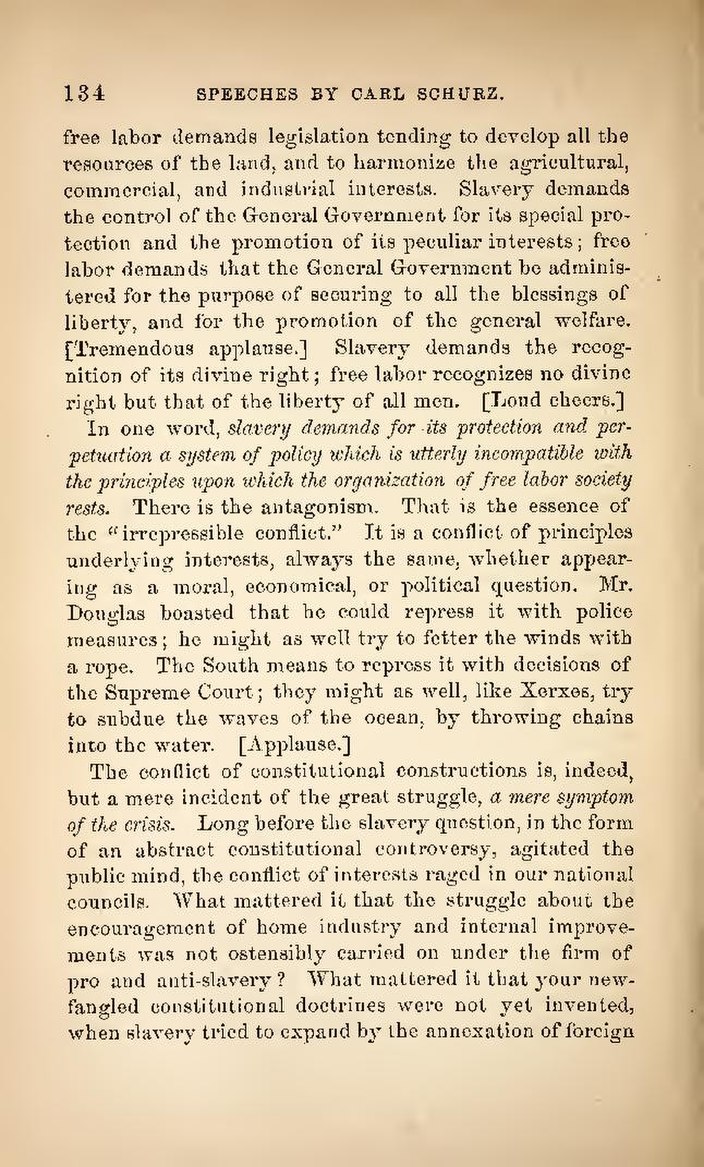free labor demands legislation tending to develop all the resources of the land, and to harmonize the agricultural, commercial and industrial interests. Slavery demands the control of the General Government for its special protection and the promotion of its peculiar interests; free labor demands that the General Government be administered for the purpose of securing to all the blessings of liberty, and for the promotion of the general welfare. [Tremendous applause.] Slavery demands the recognition of its divine right; free labor recognizes no divine right but that of the liberty of all men. [Loud cheers.]
With one word, slavery demands for its protection and perpetuation a system of policy which is utterly incompatible with the principles upon which the organization of free labor society rests. There is the antagonism. That is the essence of the “irrepressible conflict.” It is a conflict of principles underlying interests, always the same, whether appearing as a moral, economic, or political question. Mr. Douglas boasted that he could repress it with police measures; he might as well try to fetter the winds with a rope. The South means to repress it with decisions of the Supreme Court; they might as well, like Xerxes, try to subdue the waves of the ocean, by throwing chains into the water. [Applause.]
The conflict of constitutional constructions is, indeed, a mere incident of the great struggle, a mere symptom of the crisis. Long before the slavery question, in the form of an abstract constitutional controversy, agitated the public mind, the conflict of interests raged in our national councils. What mattered it that the struggle about the encouragement of home industry and internal improvements was not ostensibly carried on under the form of pro and anti-slavery? What mattered it that your newfangled constitutional doctrines were not yet invented, when slavery tried to expand by the annexation of foreign
